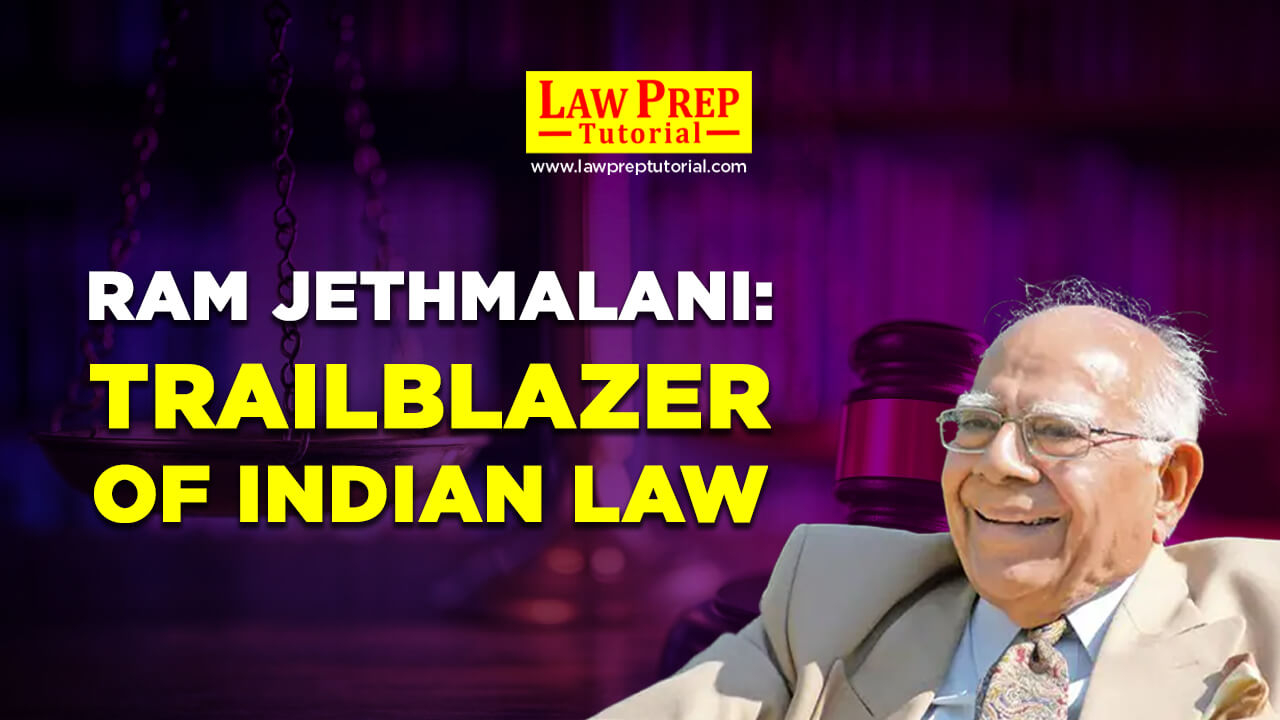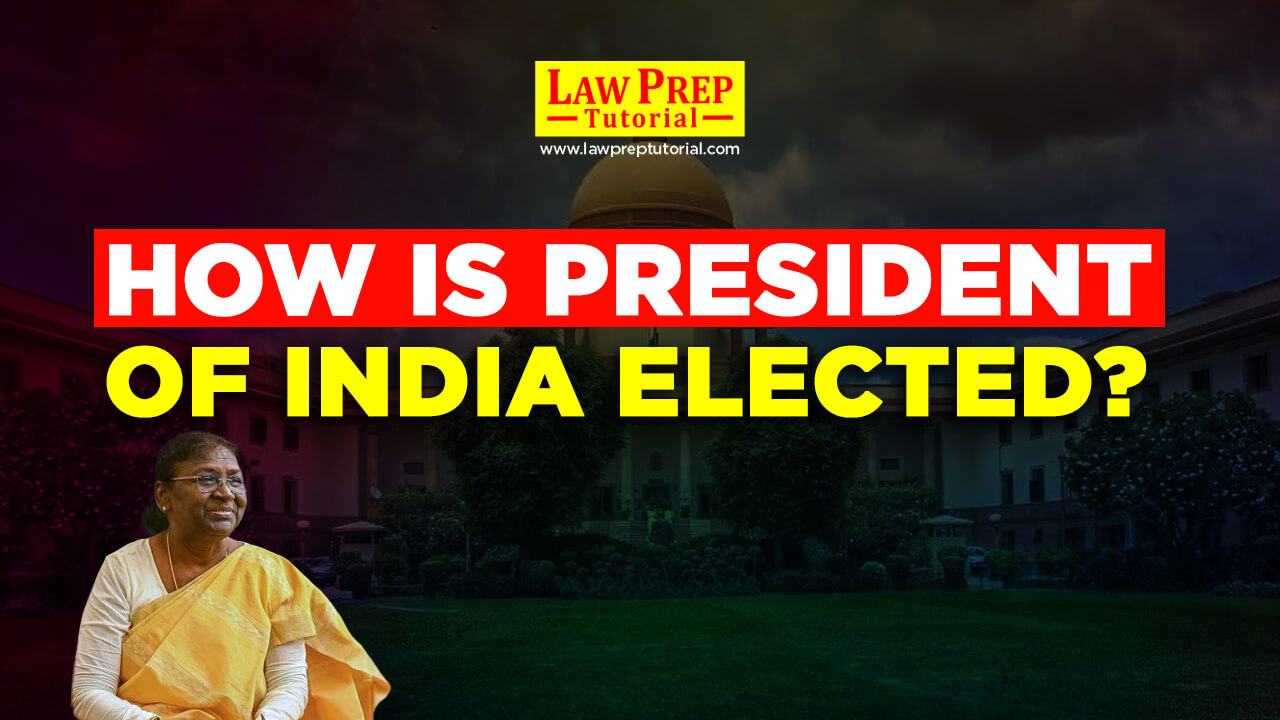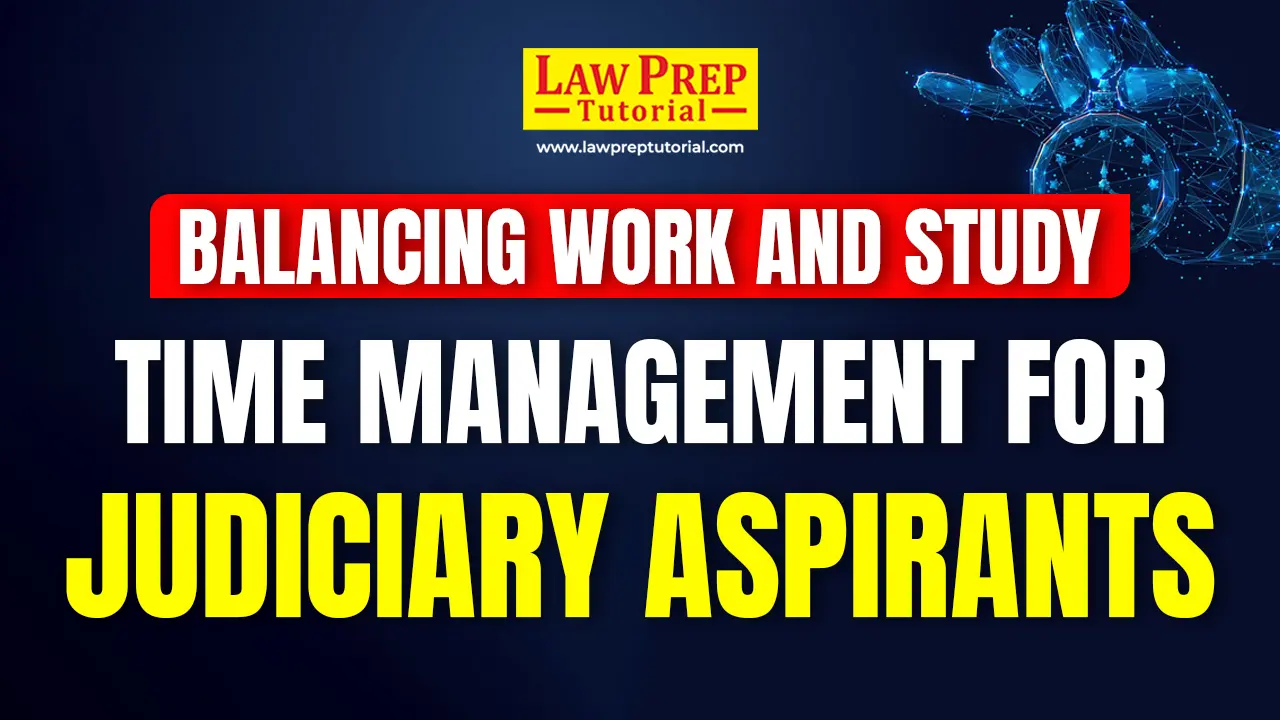Are you preparing for the judiciary exams in India? Are you curious to know about every state’s most recent information regarding judiciary exams? We have got you covered!
We know how difficult it is to search via multiple websites for examination mode, age limit, notifications of application dates, and the upcoming judiciary vacancy in 2024. Say bye to the never-ending hunt, and let us serve as your one-stop solution for all the important information you require.
Read this blog for details about upcoming judicial exams, such as state-wise judicial services, the official website to apply to, eligibility criteria, etc.

Importance of Judiciary Exams
The judiciary exams are the first step for law graduates to enter the judiciary. The purpose of a career in the judiciary is to serve the public, learn how the legal system works, and ensure justice prevails.
The upcoming judiciary exams in India are tests law graduates take to join the lower courts. The lower court judges are selected through a recruitment process conducted by the state government (in most states) and overseen by the high court of their respective chosen states.
As members of the Indian judiciary, the selected candidates receive handsome perks and privileges, including accommodation, travel and fuel allowances, telephone allowances, subsidized electricity and water supplies, etc.
Top States That Conduct Judiciary Exams in 2024
Judiciary exams in India are conducted annually by each state. The list of states that will conduct upcoming judiciary exams in 2024 is tabulated below:
| Arunachal Pradesh | Maharashtra | Sikkim | Chhattisgarh |
| Uttar Pradesh | Jammu & Kashmir | Assam | Manipur |
| Jharkhand | Goa | West Bengal | Mizoram |
| Bihar | Punjab | Karnataka | Delhi |
| Himachal Pradesh | Nagaland | Madhya Pradesh | Rajasthan |
| Kerala | Uttarakhand | Haryana | Odisha |
| Andhra Pradesh | Gujarat | Meghalaya | Tamil Nadu |
| Telangana | Tripura | – | – |
Also Read: How to Prepare for Judiciary Exams in 2024? Full Strategy
Upcoming Judiciary Exams in 2024
Every state in the country administers the entrance exam for admission to its subordinate judiciary system. There’s a notable surge in law graduates registering for judicial services examinations across many states.
Below are the details of the different judiciary exams in India:
1. Rajasthan Judiciary Examination (RJS)
| Administered By | Rajasthan High Court, Jodhpur |
| Age Limit of the Candidates | The age limit is 21-40 years. 5 years age relaxation for SC/ ST/ OBC/ Women candidates |
| Educational Requirements | Bachelor’s Degree in Law |
| Mode of Application | Online |
| Mode of Examination | Offline |
| Official Website | hcraj.nic.in |
2. Uttar Pradesh Judiciary Examination (UP PCSJ)
| Administered By | Uttar Pradesh Public Service Commission |
| Age Limit of the Candidates | The age limit is 22-35 years. 5 years age relaxation for SC/ ST/ OBC/ Sports person/ State Govt. Employees/ Ex-servicemen. 15 years age relaxation for physically handicapped |
| Educational Requirements | Bachelor’s Degree in Law |
| Mode of Application | Online |
| Mode of Examination | Offline |
| Official Website | https://uppsc.up.nic.in/ |

3. Himachal Pradesh Judiciary Examination
| Administered By | Himachal Pradesh Public Service Commission |
| Age Limit of the Candidates | The age limit is 22- 35 years. 5 years age relaxation for women candidates/ physically handicapped candidates. 3 years age relaxation for SC/ ST/ OBC candidates |
| Educational Requirements | Bachelor’s Degree in Law |
| Mode of Application | Online |
| Mode of Examination | Offline |
| Official Website | http://www.hppsc.hp.gov.in/hppsc/ |
Also Read: Delhi Judiciary Syllabus 2024 (DJS Pre & Mains Syllabus)
4. Uttarakhand Judiciary Examination
| Administered By | Uttarakhand Public Service Commission |
| Age Limit of the Candidates | The age limit is 22-35 years. 5 years of age relaxation for SC/ ST/ Ex-servicemen. 10 years of age relaxation for PwD candidates. 3 years of age relaxation for OBC candidates |
| Educational Requirements | Bachelor’s Degree in Law |
| Mode of Application | Online |
| Mode of Examination | Offline |
| Official Website | https://highcourtofuttarakhand.gov.in/recruitment/archive |
5. Gujarat Judiciary Examination
| Administered By | Gujarat Public Service Commission |
| Maximum Age Limit to Apply | The age limit is 35 years. Until the age of 38, candidates who are members of SC/ ST/ Socially and Educationally Backward Classes/ Disabled Persons (PH)/ Ex-servicemen are eligible to apply |
| Educational Requirements | Bachelor’s Degree in Law |
| Mode of Application | Online |
| Number of Vacancies | 208 (approx) |
| Mode of Examination | Offline |
| Official Website | https://gujarathighcourt.nic.in/ |
6. Madhya Pradesh Judiciary Examination
| Administered By | Madhya Pradesh High Court |
| Age Limit of the Candidates | The age limit is 21-35 years. 3 years of age relaxation for Natives of Madhya Pradesh/ SC/ ST/ OBC / PwD/ Permanent/ Temporary employees of MP |
| Educational Requirements | Bachelor’s Degree in Law |
| Mode of Application | Online |
| Mode of Examination | Offline |
| Official Website | https://mphc.gov.in. |
7. Delhi Judiciary Examination
| Administered By | High Court of Delhi |
| Maximum Age Limit of the Candidates | The age limit is 32 years. 5 years age relaxation for SC/ ST/ Ex.Servicemen/ Short Service Commission Officers. 10 years of age relaxation for PwD/ General with disability candidates and 15 years of age relaxation for SC/ ST with disability candidates |
| Educational Requirements | Bachelor’s Degree in Law |
| Mode of Application | Online |
| Mode of Examination | Offline |
| Official Website | delhihighcourt.nic.in |
8. Chattisgarh Judiciary Examination
| Administered By | Chhattisgarh Public Service Commission |
| Age Limit of the Candidates | The age limit is 35 years. 5 years of age relaxation for SC/ ST/ OBC, 10 years for Women/ Physically Handicapped candidates. 3 years of age relaxation for State Government Employees of Chhattisgarh |
| Educational Requirements | Bachelor’s Degree in Law |
| Mode of Application | Online |
| Mode of Examination | Offline |
| Official website | https://psc.cg.gov.in/ |
9. Bihar Judiciary Examination
| Administered By | Bihar Public Service Commission |
| Age Limit of the Candidates | The age limit is 22-35 years. 5 years of age relaxation for Reserved (including women & orthopedically handicapped)/ Unreserved Women |
| Educational Requirements | Bachelor’s Degree in Law |
| Mode of Application | Online |
| Mode of Examination | Offline |
| Official Website | https://www.bpsc.bih.nic.in/ |
Also Read: Delhi Judiciary Books 2024 (Best Books for DJS Exam)
10. Jharkhand Judiciary Examination
| Administered By | Jharkhand Public Service Commission |
| Age Limit of the Candidates | The age limit is 22-35 years. 3 years of age relaxation for SC/ ST/ Women candidates. 10 years of age relaxation for PwD candidates |
| Educational Requirements | Bachelor’s Degree in Law |
| Mode of Application | Online |
| Mode of Examination | Offline |
| Official Website | www.jpsc.gov.in |
11. Maharashtra Judiciary Examination
| Administered By | Maharashtra Public Service Commission |
| Age Limit of the Candidates | The age limit is 21-35 years. The relaxation for the OBC category is 3 years. Candidates of the SC/ ST category will get 5 years of relaxation. |
| Educational Requirements | Bachelor’s Degree in Law |
| Mode of Application | Online |
| Mode of Examination | Offline |
| Official Website | https://mpsc.gov.in/ |
12. Odisha Judiciary Examination
| Administered By | Odisha Public Service Commission |
| Age Limit of the Candidates | The age should not be below 23 years or above 35 years. 5 years of relaxation for ST, SC, Women, SEBC, Ex-servicemen, and SSC officers of the defense service category. The upper age limit is 39 years for those with 7 years of service experience. 10 years of upper age limit relaxation for persons with benchmark disabilities. |
| Educational Requirements | Bachelor’s Degree in Law |
| Mode of Application | Online |
| Mode of Examination | Offline |
| Official Website | opsc.gov.in |
13. Andhra Pradesh Judiciary Examination
| Administered By | Andhra Pradesh Judicial Services Exam |
| Total Number of Vacant Posts | 39 vacancies32 under Direct Recruitment7 vacancies under Recruitment by Transfer |
| Age Limit of the Candidates | The maximum age limit is 35 years. 5 years of relaxation for OBC/ SC/ ST. 10 years of age relaxation for the physically handicapped category. |
| Educational Requirements | Bachelor’s Degree in Law |
| Mode of Application | Online |
| Mode of Examination | Offline |
| Start of Online Application Form | 31 January 2024 |
| Last Date of Application Form Submission | 1 March 2024 (upto 11:59 pm) |
| Official Website | www.aphc.gov.in |
Also Read: Rajasthan Judiciary (RJS) Syllabus 2024 – Prelims & Mains
14. West Bengal Judiciary Examination
| Administered By | West Bengal Public Service Commission |
| Age Limit of the Candidates | Applicants must be at least 23 with a maximum age limit of 35. 5 years of relaxation for SC/ ST categories and 3 years for the BC (non-creamy layer) categories. Up to 45 years for persons with disabilities of 40% and above, and 2 years for those who have served in Government for at least 2 years. |
| Educational Requirements | Bachelor’s Degree in Law |
| Mode of Application | Online |
| Mode of Examination | Offline |
| Official Website | wbpsc.gov.in |
15. Punjab Judiciary Examination
| Administered By | Punjab and Haryana High Court |
| Age Limit of the Candidates | The age limit is 21-37 years. It is up to 42 years for candidates of SC & ST categories. And up to 45 years for all State/ Central Government employees. The age limit is up to 47 years for physically disabled persons with domicile in Punjab. |
| Educational Requirements | Bachelor’s Degree in Law |
| Mode of Application | Online |
| Mode of Examination | Offline |
| Official Website | www.ppsc.gov.in |
16. Karnataka Judiciary Examination
| Administered By | Karnataka High Court |
| Age Limit of the Candidates | For Direct Recruitment:38 years for SC/ ST categories, and 35 years in case of general. For Recruitment of In-Service Category:43 years for SC/ ST categories, and 40 years for general category |
| Educational Requirements | Bachelor’s Degree in Law |
| Mode of Application | Online |
| Mode of Examination | Offline |
| Official Website | karnatakajudiciary.kar.nic.in |
17. Madhya Pradesh Judiciary Examination
| Administered By | Madhya Pradesh High Court |
| Age Limit of the Candidates | Candidates must be at least 21, with a maximum age limit of 35. 5 years of age relaxation for ST and SC categories of MP, 3 years for temporary/ permanent workers of MP, and 10 years for women (SC/ ST/ OBC/ Unreserved). |
| Educational Requirements | Bachelor’s Degree in Law |
| Mode of Application | Online |
| Mode of Examination | Offline |
| Official Website | https://mphc.gov.in. |
Also Read: Bihar Judiciary Syllabus 2024 (Bihar PCS J Syllabus)
18. Telangana Judiciary Examination
| Administered By | Telangana High Court |
| Total Number of Vacant Posts | 46 (Existing vacancies)104 (Future/ Anticipated vacancies) |
| Age Limit of the Candidates | Candidate must be between 23 and 35 (40 years for SC, ST, OBC). Age relaxation of 5 years (up to 40 years) for SC, ST, and backward classes. 10 years of relaxation (up to 45 years) for the physically handicapped category. |
| Educational Requirements | Bachelor’s Degree in Law |
| Mode of Application | Online |
| Mode of Examination | Offline |
| Official Website | tshc.gov.in |
Common Judiciary Exams Pattern
The Judiciary selection process comprises 3 stages- Prelims, Mains, and Viva-voce. The pattern for prelims, mains, and personal interviews varies for every state. The final selection depends on the combined scores secured by an aspirant in mains and interviews.
The table below details the exam pattern for all the 3 stages:
| Exam | Exam Type | Qualifying Marks | Evaluation Criteria |
| Prelims | It consists of objective-type questions and acts as a screening test for the mains. | It is a subjective exam comprised of 3 to 4 papers. | Evaluation based on- General Knowledge, Personality, and Aptitude |
| Mains | It consists of descriptive-type questions. | The minimum qualifying marks differ from state to state. | They are evaluated based on law subjects. |
| Personal Interview | The marks are considered in the final score. | The exam marks are considered for the final selection. | Candidates are selected through marks scored in the interview and mains. |
Conclusion
The upcoming judiciary exams in 2024 will test the knowledge and skills of those pursuing a career as a magistrate or judge. The exams assess their understanding of the law and ability to apply it in court. Conducting the Judiciary Exams also ensures that candidates have a good knowledge of courtroom procedures and the ethical responsibilities of a judge. The results of the exams determine who is qualified to be appointed as a judge.
Read more blogs:










